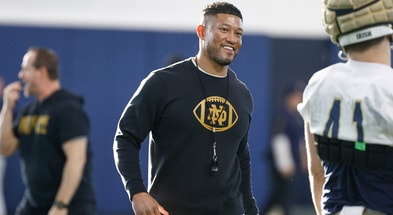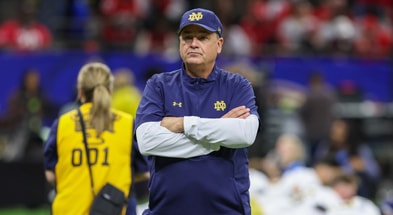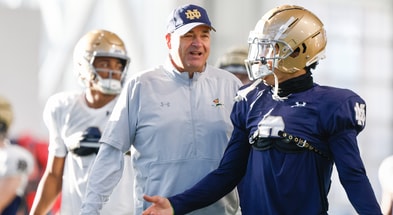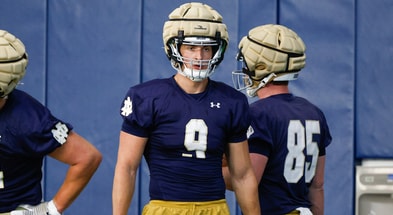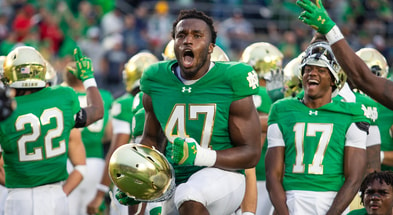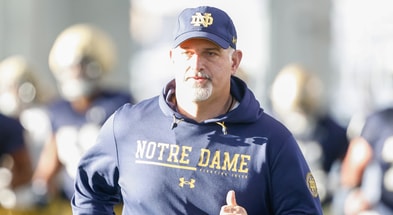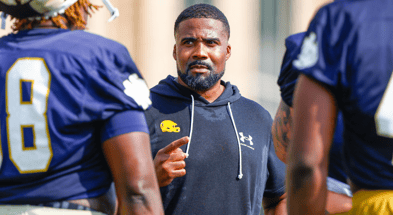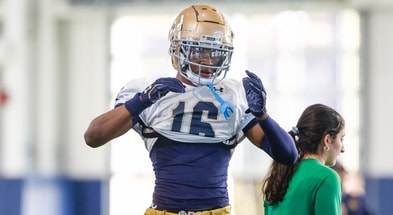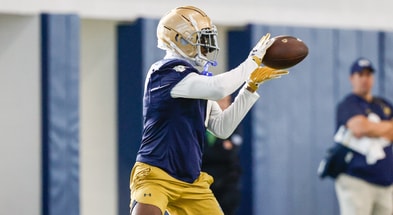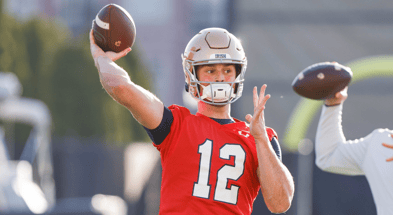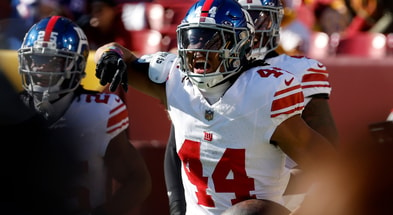Why Notre Dame AD Jack Swarbrick says ‘college athletics is in crisis’
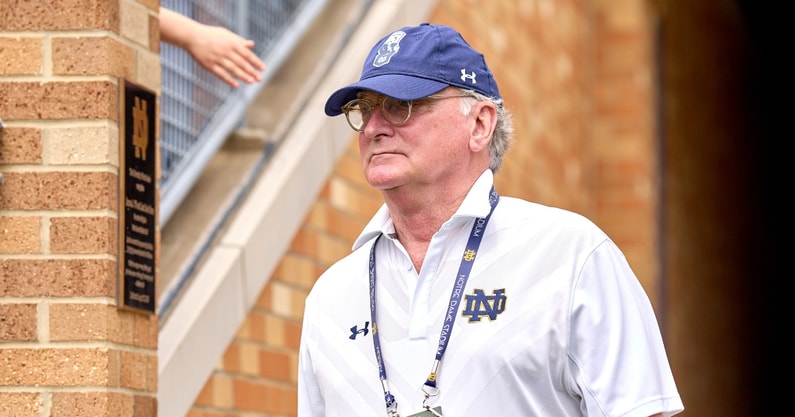
This isn’t the first time Notre Dame director of athletics Jack Swarbrick has cried out about the current state of college athletics. But it’s probably the most pointed he’s ever been.
Swarbrick teamed up with Notre Dame president John I. Jenkins to write an op-ed in Thursday’s New York Times. The highly-respected duo in the sphere of collegiate administration listed a number of reasons why “college athletics is in crisis,” in their own words.
“It faces threats on a number of fronts: the growing patchwork of contradictory and confusing state laws regulating it, the specter of crippling lawsuits, the profusion of dubious name, image and likeness deals through which to funnel money to recruits, the misguided attempts to classify student-athletes as employees,” they wrote. “Underlying all that is the widespread belief that college athletics is simply a lucrative business disguised as a branch of educational institutions.”
Swarbrick and Jenkins fear the fabric which has held college athletics together for over a century is deteriorating at a detrimental pace. They call on the NCAA and even the United States Congress to concoct policies and regulations that make sure academics are valued first and foremost in the lives of student-athletes.
Swarbrick and Jenkins support student-athletes monetizing on their name, image and likeness (NIL). But they note there is a fine line in doing so.
“Unfortunately, the new NIL rules have proven to be easy to abuse,” they wrote. “To avoid the NCAA prohibition against directly paying athletic recruits, many schools funnel money to recruits under the guise of a supposed third-party licensing deal — regardless of whether a player’s name, image and likeness have any market value whatsoever. We must establish and enforce regulations that allow legitimate transactions while barring those that are recruiting enticements or pay-for-play.”
Swarbrick and Jenkins argue a degree from Notre Dame is worth just as much as most student-athletes will ever make through NIL earnings. They also reason that the four-year experience at the university of Notre Dame is what sets up a student-athlete for life; not the six-figure deal one might make before ever stepping foot in a college classroom.
It’s the old-school college experience Swarbrick and Jenkins are seeking to preserve.
“To enhance the educational experience and overall health and well-being of our student-athletes, the NCAA should also set a limit on how many days away from campus a team can require,” they wrote. “Part of a college education is the interaction with others in the classroom, the dining hall and the dorms. Student-athletes deserve that experience, too.”
Swarbrick and Jenkins lobby for various other changes to the current structure of college athletics. They push for the NCAA to create a national medical trust fund to benefit all student-athletes who are injured. They want a uniform policy that allows a student-athlete to return to school with the same financial grants they had originally. See: Jerome Bettis, a Pro Football Hall of Fame running back who returned to Notre Dame to finish his degree 28 years after he put it on pause to play in the NFL.
Top 10
- 1Breaking
Morez Johnson
Illinois forward transfers to Michigan
- 2
Buzz Williams
Maryland hires Texas A&M head coach
- 3New
Tre Donaldson
Michigan guard enters portal
- 4
Aaron Bradshaw
Ohio State Forward to transfer
- 5Hot
Pat McAfee
Ole Miss student to sue ESPN
Get the On3 Top 10 to your inbox every morning
By clicking "Subscribe to Newsletter", I agree to On3's Privacy Notice, Terms, and use of my personal information described therein.
Swarbrick and Jenkins also call for the NBA to eliminate the “one and done” rule that forces a high school basketball player to spend a year in college before entering the draft. Similarly, they want the NFL to create a minor league system so that prospective players do not have to wait three years after leaving high school to play professionally if they do not wish to attend college.
The ways the NBA and NFL do it now are not advantageous in the eyes of Notre Dame’s top two administrators.
“Both policies push talented young players to enroll in college regardless of whether they have any interest in the educational experience it offers,” they wrote.
In the end for Swarbrick and Jenkins, it’s all about what makes Notre Dame such a sacred place and what could make other colleges around the country more special than they already are: placing more emphasis on the “student” side of the term student-athlete.
“College athletics is a treasured national institution,” they wrote. “Professionalizing teams, treating athletes more as employees than as students and weakening the vital connection with the educational mission of their colleges will rob college athletics of its special character. Gradually it will be seen as merely a version of the professional minor leagues.
“More important, that approach will not serve the vast majority of young men and women who pursue a college degree and grow personally while they play the sport they love. We can support them and preserve the institution that serves them.”

